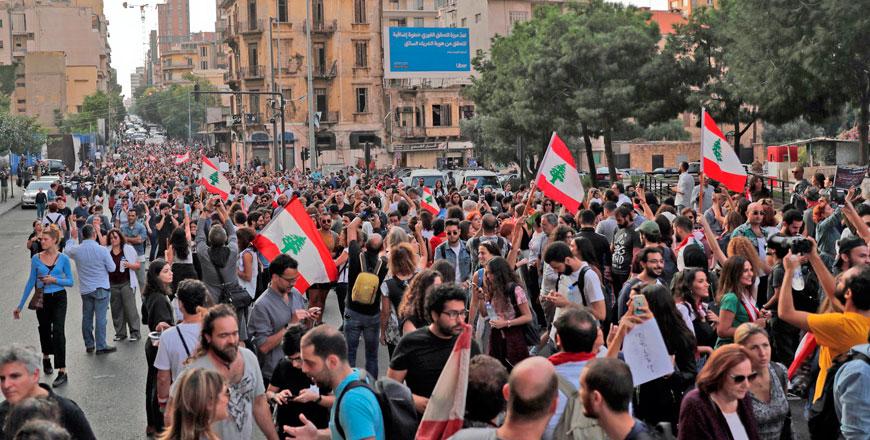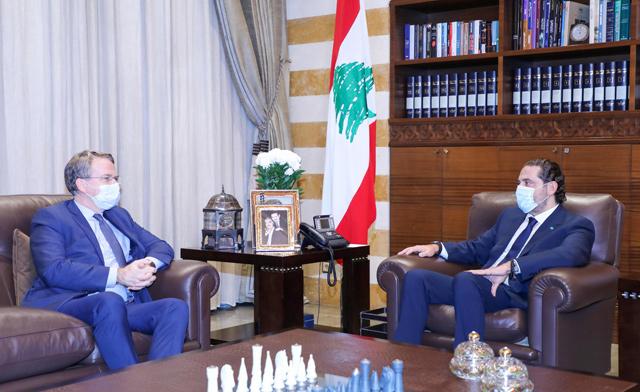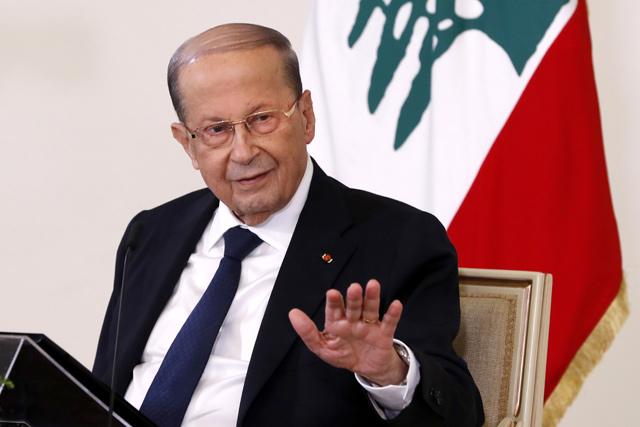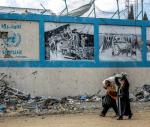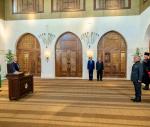You are here
Hariri lashes out as wrangling delays government formation
By AFP - Mar 23,2021 - Last updated at Mar 23,2021
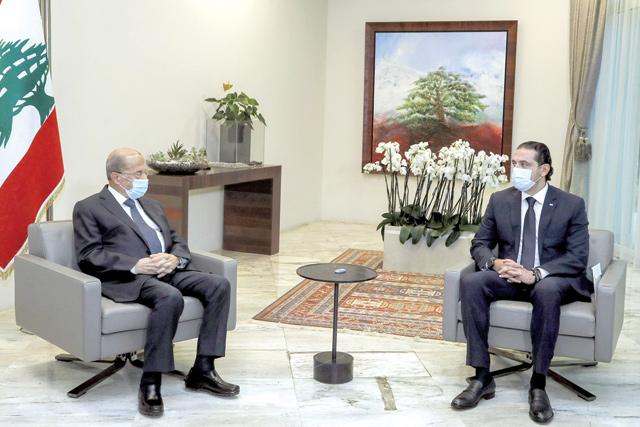
This handout photo provided by the Lebanese photo agency Dalati and Nohra on Monday, shows Lebanese President Michel Aoun (left) meeting with prime minister-designate Saad Hariri at the presidential palace in Baabda, east of the capital Beirut (AFP photo)
BEIRUT — Lebanon's Prime Minister-designate Saad Hariri and President Michel Aoun failed again on Monday to agree on a new government line-up after seven months of deadlock, as the country sinks deeper into economic crisis.
"I asked the president to listen to the woes of the people and to give this country its final chance of having a technocratic government capable of reform," Hariri said from the presidential palace after his proposed Cabinet line-up was rejected.
Hariri's remarks crushed hopes for a government breakthrough, as political leaders continued to wrangle over Cabinet shares despite widespread anger at an economic crisis that has reignited street protests against a decades-old ruling class.
Hariri said Aoun and the party he founded are pushing for a third of all Cabinet seats, which would give them veto power over government decisions.
Aoun "sent me last night a line-up that grants his team a third of Cabinet seats", Hariri said.
"This is not acceptable."
The three-time premier, who was selected in October to form a new government, made public an alternative line-up he said he had submitted to the president more than three months ago.
Hariri’s proposal was comprised mainly of experts and included fresh names, such as Firas Abiad, the head of Lebanon’s main coronavirus hospital, Nasser Yasin of the American University of Beirut and prominent political scientist Fadia Kiwan, according to a list published by his office.
He said the line-up was turned down because it didn’t give the president’s set privileged power.
‘No hope’
The outgoing government of premier Hassan Diab resigned in the wake of an August 4 explosion at Beirut’s port that killed more than 200 people and ravaged swaths of the capital.
Lebanon’s leaders have since traded blame for the government delay, with Aoun calling on Hariri to step down if he is incapable of forming a government suitable to all parties.
Hasan Nasrallah, the leader of the powerful Shiite Hizbollah movement and a close ally of Aoun, has also criticised the hold up.
In a speech on Thursday, Nasrallah called on Hariri to abandon his push for a 18-member cabinet comprised entirely of technocrats.
“A government of technocrats that is not backed by political groups won’t save the country,” Nasrallah said, calling for established parties to also be represented.
In a report published ahead of Monday’s meeting, the pro-Hizbollah Al Akhbar daily said there is “no hope for a breakthrough”.
“Nothing has changed”.
Lebanon is in the grips of its worst economic crisis since the 1975-1990 civil war.
More than half the population lives below the poverty line and the national currency has lost more than 85 per cent of its value against the dollar on the black market.
The Lebanese pound, pegged at 1,507 to the greenback since 1997, sold for 15,000 to the dollar on the black market last week at an all-time low.
The rapid currency plunge reignited street protests that started in 2019 but were temporarily snuffed out last year due to the coronavirus pandemic.
Demonstrators criticised officials for wrangling over Cabinet posts instead of coming together to form a government capable of spearheading reforms long demanded by donors and the international community.
“There are no signs indicating we are heading towards a solution,” Lebanon’s French-language daily L’Orient-Le Jour reported on Monday.
“Talks are going in circles.”
The international community has also denounced the performance of Lebanese officials.
“Lebanese authorities should act urgently to halt the deepening crisis and ensure good governance,” United Nations humanitarian coordinator Najat Rochdi told the Security Council last week.
French President Emmanuel Macron, who is leading the international charge against Lebanon’s under-fire politicians, said last week he would push for a new approach to “prevent the collapse of the country”.
The European Union and the United States should also ramp up pressure on Lebanese politicians, said a French diplomatic source, who did not rule out the possibility of sanctions.
French Foreign Minister Jean-Yves Le Drian on Monday pressed his European counterparts to take action to stave off Lebanon’s collapse.
“I want us to be able to discuss together the levers that would allow us to put pressure on the Lebanese authorities,” he said in Brussels.
Related Articles
BEIRUT — Lebanese protesters faced off with security forces Thursday as they tried to block reopened roads and prevent their unprecede
BEIRUT — An adviser to French President Emmanuel Macron met top Lebanese officials on Thursday in a desperate bid to save a plan Paris put f
BEIRUT — Crisis-hit Lebanon's next prime minister, the third in a year, will have to spearhead reforms and battle corruption, President Mich


